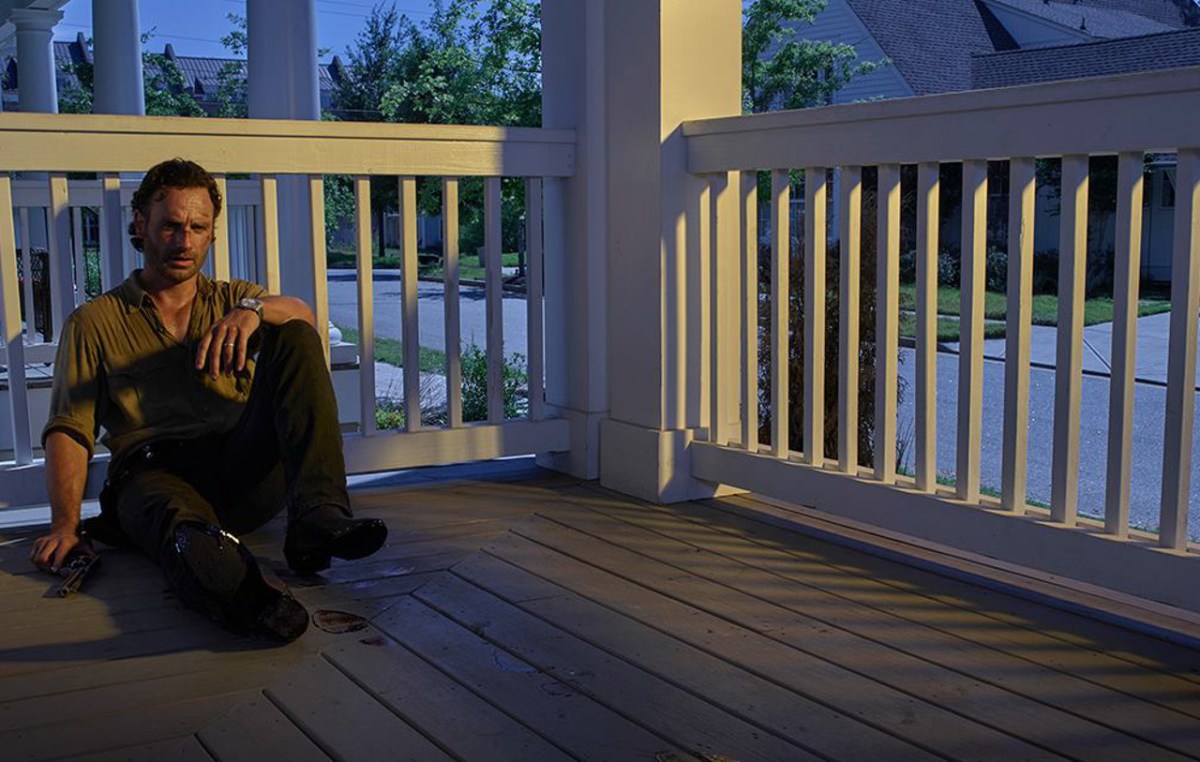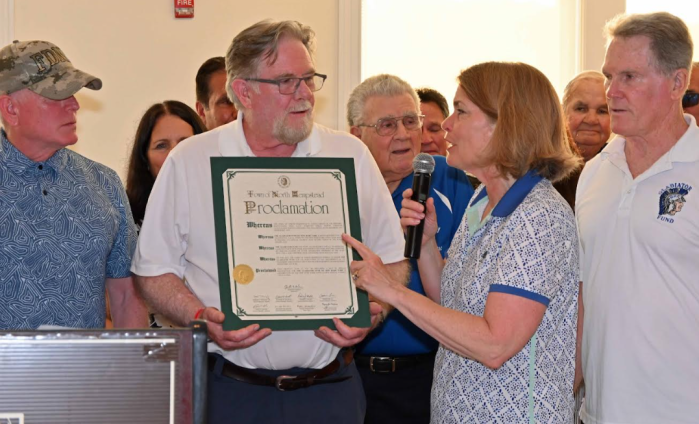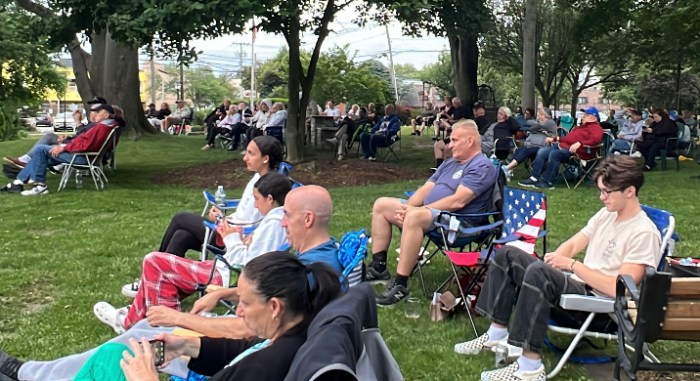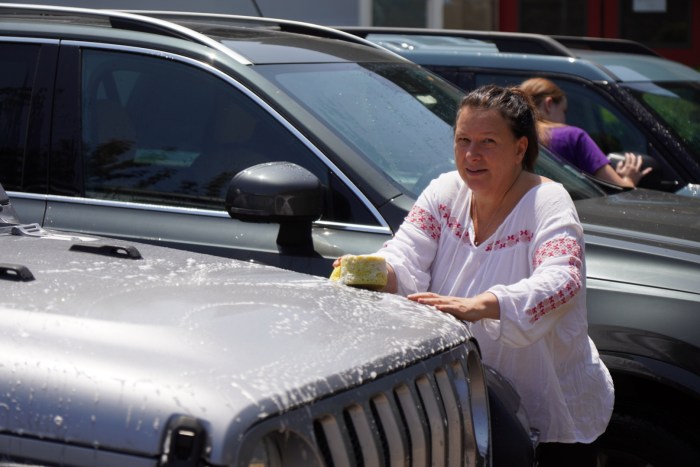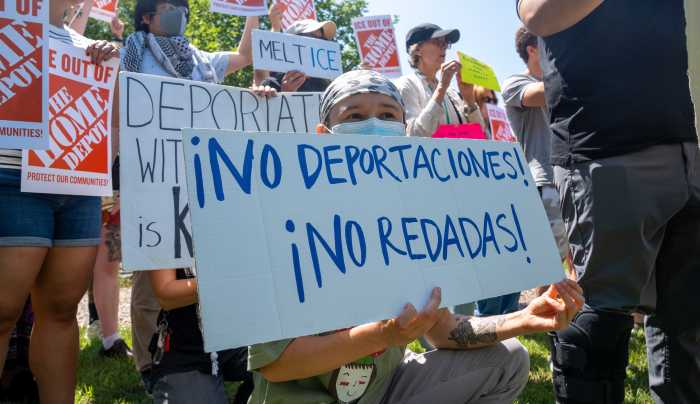By Lissa Harris
All over social media I saw complaints about Sunday night’s episode of The Walking Dead. Some called it a “snoozefest.” Others said that it paled in comparison to last week’s episode, which was arguably the most violent of the series. And that’s saying something.
But I beg to differ. Anyone who thought this last episode was boring doesn’t understand what this show is trying to achieve. Let me take a stroll down the memory lane of past episodes to explain why “Here’s Not Here” was so important to the series.
From season one, we are told that walkers are not the only ambulatory bodies to fear. Humans can be downright terrifying when put into situations of high danger and imminent threat to their safety and well-being. That is why there’s “road rage.” The world of TWD is “road rage” multiplied by a googol. Here, tensions are ramped up so high that anyone would jump a mile at the sound of a loud fart. In this situation some people adopt a kind of kill or be killed attitude seemingly out of necessity. Case in point, the Stanford prison experiments conducted in 1971 in which two groups of people were placed in a fake prison where some were arbitrarily made guards and the others were inmates. As the experiment continued, some guards became increasingly cruel. After only 36 hours, “experimenters reported that approximately one-third of the guards exhibited genuine sadistic tendencies.”
In this show, Merle Dickson is the first character to cause concern, making several violent threats to some other members of the group. Merle is a racist, a misogynist, and a sadist, all bound up in a white trash wrapper. He is a bad guy chained to a rooftop and left to die, but not on purpose. T-Dog went back for him when the walkers started swarming but he dropped the handcuff key down a grate before he could set Merle free. Problem solved, at least temporarily, and no one had to get Merle’s blood on their hands because killing the living, even nasty ones, is morally wrong.
Or is it?
Season two fine-tuned this philosophical debate by pitting the two main protagonists, Rick and Shane, against each other. Shane thinks Rick is too soft to keep the group safe because he lacks the grit to make the hard decisions. Rick believes Shane is a dangerous man who has gone down a path of destruction and violence that will rob him of his very soul. Enter the good hearted. Hershel is a peaceful farmer who has no idea how violent the world has become. He’s trying to save walkers for a future cure. He even prohibits guns on the farm. Dale tries to convince the group to spare a young prisoner they’ve captured from a violent gang.
In this season, Shane sacrifices Otis to get medicine to save Carl. OMG, where are the norms and mores of this model society? What are we supposed to believe about the rules now?
Seasons three, four, five, and six have continued to challenge all we hold dear. We are introduced to the power hungry Governor and the cannibals at Terminus, characters who are high on the threat scale. Then we meet Joe and his group who are about to rape Carl when Rick kills them. And we come face to face with characters Aiden, Father Gabriel and Nicholas who endanger our protagonists by allowing their fear to direct their bad decision making.
At last, we finally understand that there is no other way but to kill those who pose a threat to the group’s survival. We even start to root for the death of those who are merely weak, like the throw-away character Carter, who gets bitten by a walker. Rick immediately snuffs him out to prevent Carter’s cries of pain from attracting more walkers.
Then there’s last week’s episode—and Glen, oh Glen! Are you dead, Glen? Rick may have blood on his hands, but others remain who’ve never killed the living, proving that it was possible for us all to survive without losing our humanity in the process. We know what the death of Glen would mean. It would mean the end of everything pure and good. The end of forgiveness and love and anything that is still decent and pure in this cesspool of a world. It would mean the end of compassion, the end of human connection.
Or would it?
Finally we get to Sunday night’s episode, “Here’s Not Here.” It’s peaceful in tone, slow in tempo, and lit as if the sun is either just coming up or just going down. It is Morgan’s backstory, what he has been doing since Rick and Michonne left him in Georgia crazy and muttering to himself.
Enter Eastman, who finds Morgan trying to steal his goat and puts him in an unlocked cell for days before convincing him to stay as his companion. Eastman killed even before the world went to hell. He slew the murderer of his wife and two children by starving him to death over the course of 47 days. And yet Eastman tells Morgan that his revenge killing brought him no peace. He is responsible for Morgan’s new tag line, “All life is precious,” as well as his newfound skills with a bamboo bo staff.
This was no filler episode. This was the show-runner’s way of once again messing up our sense of right and wrong as we watch this new world that makes no goddamn sense to us. Eastman is a new breed; a man who is trusting but ready to defend himself in very lethal ways. He will no longer kill another living thing. He was surviving with love and compassion.
But the episode turns us around again! We realize that Morgan has been telling his story to a captured member of the “Wolves” gang who has the darkest eyes and brownest teeth I’ve ever seen. This prisoner reveals that he has been bitten and will probably die. But if he survives, he insists he will kill every man, woman and child in Alexandria without hesitation. Morgan locks the prisoner in his cell, proving that he is still struggling with Eastman’s peaceful way.
This philosophical debate has finally reached the point where both sides have become almost completely fused together in some grotesque grafting. And my prediction is that it will continue to volley us back and forth emotionally and intellectually until we are so sick and dizzy we won’t know whom we should root for.
Most boring TWD episode ever? No way. This was time for reflection.
(Photo credit: The Walking Dead/Facebook)




